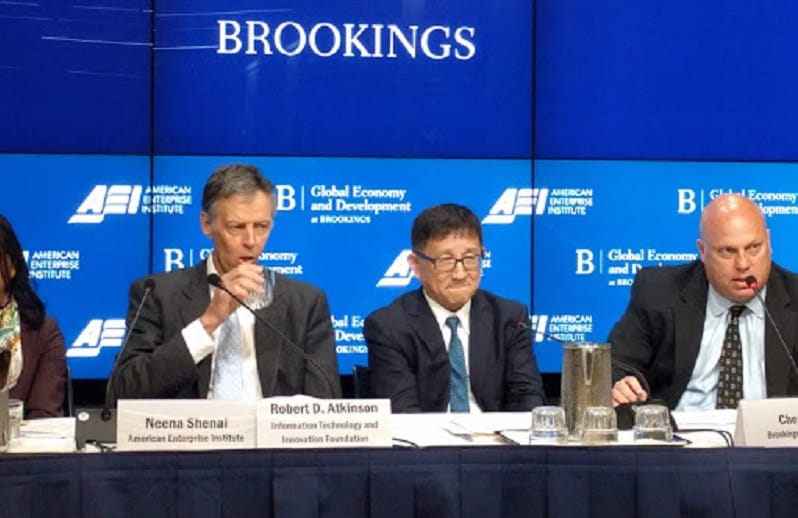In U.S.-China Trade Dispute, Continuing to Impose Tariffs Hurts U.S. Innovation
WASHINGTON, July 22,2019 – As friction continues in the trade war between U.S. and China, policy experts believe that continuing to impose import tariffs will hurt U.S. innovation and provide China more economic leverage in the long run. The U.S. has an estimated billion-dollar welfare loss due to i

WASHINGTON, July 22,2019 – As friction continues in the trade war between U.S. and China, policy experts believe that continuing to impose import tariffs will hurt U.S. innovation and provide China more economic leverage in the long run.
The U.S. has an estimated billion-dollar welfare loss due to its heavy reliance on tariffs, said Joshua Meltzer, senior fellow of global economy and development at the Brookings Institute on Thursday. Tariffs are “unlikely” to put U.S-China relations on a stable footing, he said.
The tension within these foreign relations is one of the most consequential and multilateral issues facing the global economy, said Cheng Li, director of the John L. Thornton China Center. Last year, U.S. and China have had zero percent of mutual investment between their tech sectors.
Derek Scissors, resident scholar at the American Enterprise Institute, said that the World Trade Organization is not equipped to resolve these technological issues. The U.S. currently does not have implementing regulations of export controls, he said, and that is why we need unilateral action on this matter.
Panelists also recognized that the Chinese state-led economic model makes future negotiations difficult, said Neena Shenai, visiting scholar at AEI.
China doesn’t believe in comparative advantage but in “absolute” advantage, said Rob Atkinson, president of the Information Technology and Innovation Foundation. That, he said, is the “core” problem.
Atkinson added that the Chinese president made a “strategic blunder” with pushing indigenous domestic innovation, which alienated imports.
For the U.S. to work with China on a “sustained” basis, said Scissors, China needs to have “some level” of pro-competition, pro-property reform. In an anti-competitive market, China will not do well unless it can harness a single, “transformational” technology, he said.
Despite the differences in China’s economic model, continued collaboration may be in the U.S.’ best interests.
If we use dictatorship as a reason not to trade with China, said Atkinson, then we would not be trading with forty percent of the world’s economy.
China has a “long way to go” before it can think of replacing the U.S. as a superpower, said Li. Huawei CEO Ren Zhengfei had acknowledged that within the next couple years, Huawei could lose around 30 billion U.S. dollars due to the import ban.
The goal should not be to stop China from rising, said Atkinson, but rather to stop China from hurting our economy while they do so.
(Photo of event by Masha Abarinova.)










